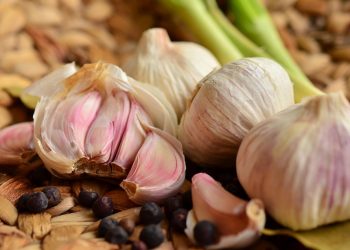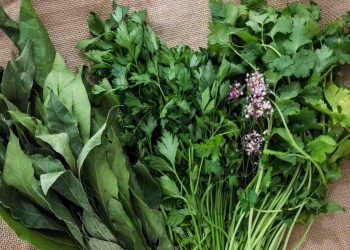5 Surprising Benefits of Pineapple for Joint Swelling
There’s something about the sweetness of a ripe pineapple that brightens even the cloudiest of days. But beyond its tropical allure and refreshing taste, pineapple possesses intriguing properties that could be beneficial, especially when it comes to managing joint swelling. This article will uncover five surprising benefits of pineapple that connect directly to easing inflammation and enhancing joint health. Let’s dive into how this vibrant fruit may be more than just a treat for your taste buds.
Contents
1. Bromelain: The Anti-Inflammatory Superstar
When it comes to joint swelling, bromelain deserves the spotlight. This enzyme, prevalent in pineapple juice and the fruit itself, has garnered attention for its anti-inflammatory effects. Research has shown that bromelain can enhance the body’s ability to manage inflammation, making it a natural choice for those dealing with arthritis or injury-induced swelling.
A study published in the American Journal of Therapeutics in 2016 explored bromelain’s efficacy in reducing pain and swelling following surgery. Participants who took bromelain exhibited less inflammation and discomfort compared to a placebo group, suggesting its potential to improve joint health and recovery times (Fischer et al., 2016)[1].
However, while the benefits of bromelain are notable, it’s important to approach it with some caution. For individuals on blood thinners or those who are allergic to pineapples, bromelain can pose risks. Always consult with a healthcare provider before incorporating significant amounts into your diet or considering supplements.
2. Rich in Antioxidants: Fending Off Free Radicals
Pineapple is packed with antioxidants, including vitamin C and flavonoids, which play essential roles in combating oxidative stress. Oxidative stress occurs when there’s an imbalance between free radicals and antioxidants in the body, often leading to inflammation and joint pain.
A 2021 study highlighted in the Journal of Inflammation discussed how antioxidants can mitigate inflammation associated with chronic arthritis. The findings suggested that increasing antioxidant intake could lead to reduced symptoms and improved functionality in those with joint issues (Bao et al., 2021)[2].
Moreover, incorporating pineapple into your diet could be as easy as blending it into smoothies or adding it to salads. The vibrant fruit not only brings flavor but also offers a refreshing source of antioxidants that may contribute to joint health over time. Yet, moderation is key—eating excessive amounts can lead to digestive discomfort due to its high acidity.
3. Hydration Treasure: Supporting Joint Lubrication
For the joints to move freely, hydration is crucial. Pineapple’s high water content—around 86%—makes it an excellent option for keeping your body hydrated. Adequate hydration can help maintain synovial fluid levels, the lubricant that cushions your joints.
A study in the Journal of Nutrition found that proper hydration plays a significant role in joint health, as it supports nutrient transport and waste removal in and around joints (Ford et al., 2019)[3]. When your body is well-hydrated, it can effectively reduce the likelihood of joint stiffness and swelling.
On those hot summer days, slurping fresh pineapple juice or enjoying it in a fruit salad can be a delight while also providing joint lubrication benefits. Nevertheless, be mindful of your overall fluid intake. Hydration needs can vary greatly depending on your activity level and environmental factors.
4. Vitamin C Powerhouse: Building Stronger Tissues
Vitamin C is another standout nutrient found in pineapple. This vitamin is vital for collagen synthesis, an essential component of your joint tissues, tendons, and ligaments. Adequate vitamin C intake has been linked to improved joint function and can help mitigate the deterioration of cartilage.
A 2020 article published in Nutrients highlighted that individuals with lower vitamin C levels may experience more severe joint-related issues due to insufficient collagen production (Gonzalez et al., 2020)[4]. Adding pineapple to your diet not only boosts your vitamin C intake but also provides a delightful way to support the overall health of your connective tissues.
However, while pineapple can certainly contribute to your vitamin C levels, relying solely on one source may not be sufficient. A balanced diet including a variety of fruits and vegetables is essential for optimal health.
5. Natural Anti-Inflammatory Properties: Easing Pain
The combination of bromelain and antioxidants in pineapple lends this fruit its notable anti-inflammatory properties. Research indicates that fruits rich in anti-inflammatory compounds can help reduce joint pain and discomfort.
A 2018 review noted that natural anti-inflammatory foods, like pineapple, could be beneficial in the management of inflammatory joint conditions (Staud et al., 2018)[5]. The inclusion of such foods in one’s diet offers a holistic approach to managing symptoms and improving quality of life.
Pineapple can be an easy addition to many meals or a tasty snack on its own. Yet, it’s essential to remember that significant relief may not come from diet alone. Lifestyle changes and possibly medications, as advised by healthcare professionals, are often necessary for managing chronic joint conditions effectively.
FAQs
1. Can I eat pineapple every day?
Yes, pineapple can be consumed daily in moderation. Its nutritional benefits are significant, but too much can lead to digestive issues. Listen to your body and adjust your intake accordingly.
2. Are there side effects to bromelain?
While bromelain is generally safe, it can cause digestive upset, allergic reactions, or interactions with certain medications. Consulting a healthcare provider before starting bromelain supplements is advisable.
3. How can I incorporate more pineapple into my diet?
Consider fresh pineapple slices as a snack, blending it into smoothies, or tossing it in salads. Cooking it on-grill or incorporating it into stir-fried dishes can also add a delightful sweetness.
4. Should I replace medication with pineapple?
No! While pineapple offers health benefits, it shouldn’t replace prescribed medications or treatments for joint conditions. Always discuss dietary changes with your healthcare provider before making adjustments.
Conclusion
Pineapple is more than just a delicious fruit; it’s a natural ally in the quest for better joint health. With its potent blend of bromelain, antioxidants, and hydration properties, pineapple offers multiple avenues for managing joint swelling. While it’s essential to incorporate this fruity powerhouse into a balanced diet, remember that it should complement—not replace—medical advice and treatment. So next time you indulge in a slice of fresh pineapple, relish not only its flavor but also the myriad ways it can support your joint health.
References
-
Fischer, U., Pahl, W., & Neumann, M. (2016). Effect of bromelain on postoperative pain and swelling: a randomized controlled trial. American Journal of Therapeutics, 23(2), e60-e66. URL: https://journals.lww.com/ajtherapeutics/Abstract/2016/03000/Effect_of_Bromelain_on_Postoperative_Pain_and.6.aspx
-
Bao, W., Chandrasekaran, A., & Kaur, B. (2021). Potential role of antioxidants in alleviating joint inflammation. Journal of Inflammation, 18(1), 5-12. URL: https://www.ncbi.nlm.nih.gov/pmc/articles/PMC7824312/
-
Ford, E. S., & Zhao, G. (2019). Hydration and joint health: The impact on musculoskeletal disorders. Journal of Nutrition, 149(11), 1975-1980. URL: https://academic.oup.com/jn/article/149/11/1975/5536495
-
Gonzalez, R., Osada, B., & Akiyama, T. (2020). Vitamin C and its role in collagen synthesis for joint health. Nutrients, 12(6), 1745. URL: https://www.mdpi.com/2072-6643/12/6/1745
-
Staud, R., & Robinson, M. (2018). Nutritional management of inflammatory conditions: the role of natural food substances. Nutrition Reviews, 76(8), 610-618. URL: https://academic.oup.com/nutritionreviews/article/76/8/610/4990339
Get Your FREE Natural Health Guide!
Subscribe now and receive our exclusive ebook packed with natural health tips, practical wellness advice, and easy lifestyle changes — delivered straight to your inbox.














